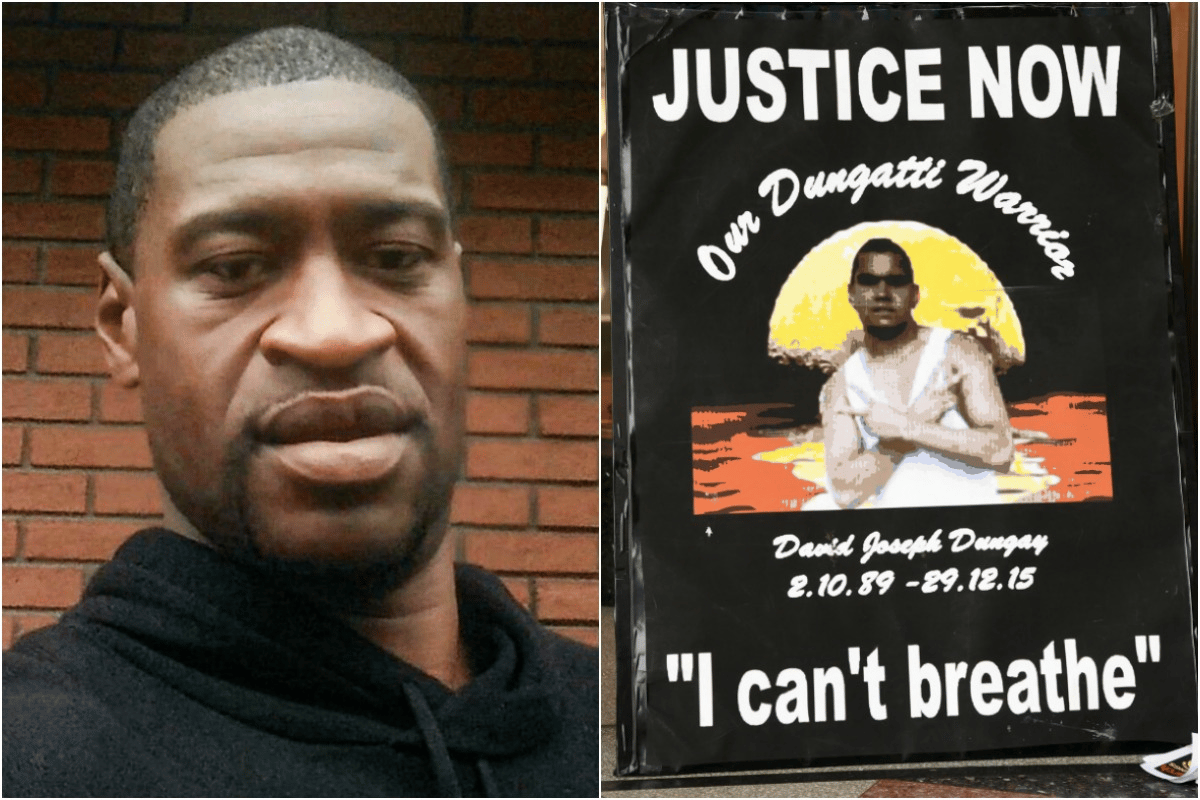
Warning: The article contains an image and the name of an Indigenous person who has died.
"I can’t breathe."
These were the last words said by George Floyd before his tragic death at the hands of Minneapolis police officers last week.
Aboriginal man, David Dungay, also muttered these words in his final moments before dying in police custody in 2015.
Many Australians like to believe that racism doesn’t exist in Australia although we can all acknowledge that the murder of George Floyd was racially motivated and abhorrent. We’re watching the news and seeing America fall apart, as protests seek to challenge the systemic racism and oppression faced by black people for generations, without a second thought to what is happening in our own backyard.
I think the reason why Australians fail to believe that racism is alive and well here is because it means they become responsible for change. It challenges them and makes them uncomfortable as they realise what it truly means to be an Australian.
Listen to Mamamia Out Loud. On this episode, Mia, Holly and Jessie speak to Amanda Fotheringham about the parallels that can be drawn between the US and Australia when it comes to racially motivated violence. Post continues below.
We often refer to our country as the ‘land of the fair and free’ but that only really applies to us if we’re white. If you’re Asian, you’re going to cop it. If you’re African, you’re going to cop it. If you are a person of colour, you will experience racism at one point or another during your time here.

Top Comments